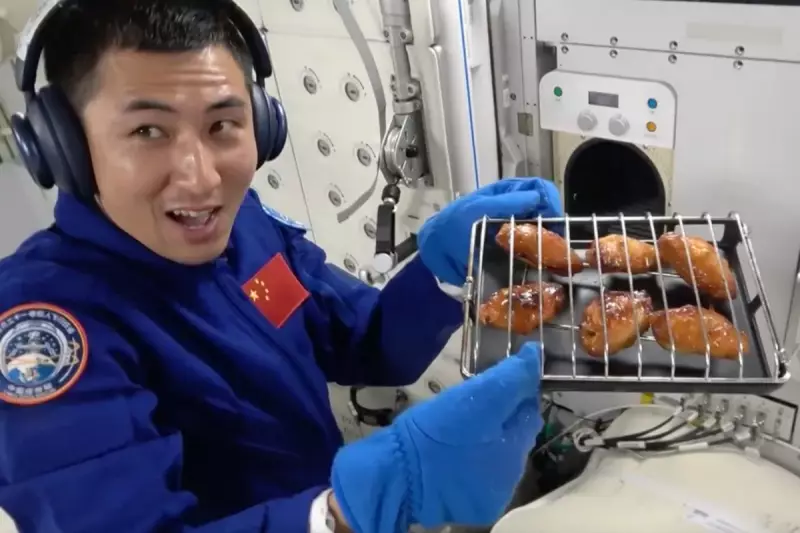
In an extraordinary culinary milestone that could revolutionise long-duration space travel, Chinese astronauts aboard the Tiangong space station have successfully conducted the first-ever barbecue in orbit. Using a specially designed electric oven, the taikonauts have been experimenting with cooking techniques that could make life in space considerably more appetising.
A Taste of Home Among the Stars
The breakthrough comes as part of China's ambitious space programme, which has seen the Tiangong station become a hub for scientific innovation. The specially developed oven can reach temperatures up to 200°C, allowing crew members to prepare freshly cooked meals rather than relying solely on pre-packaged space food.
Among the successful culinary experiments were grilled fish fillets and beef, marking a significant departure from the traditional rehydrated meals that have characterised space dining since the earliest missions. The ability to cook proper meals represents more than just gastronomic pleasure - it's a crucial psychological boost for crews facing months or even years in isolation.
Technical Challenges of Cosmic Cooking
Cooking in microgravity presents unique challenges that Earth-bound chefs never encounter. Without gravity, heat distribution works differently, and managing food particles that could float away and damage sensitive equipment requires sophisticated containment systems.
The Chinese space agency has developed multiple safety protocols to ensure that their orbital kitchen doesn't become a hazard. The oven features advanced air filtration systems and temperature monitoring to prevent any mishaps in the confined space station environment.
Implications for Future Space Exploration
This culinary breakthrough has profound implications for future missions to the Moon, Mars, and beyond. As missions become longer, the psychological importance of varied, appetising food becomes increasingly critical for crew morale and mental health.
- Improved nutrition: Freshly cooked meals can provide better nutritional value than pre-packaged alternatives
- Psychological benefits: The comfort of familiar cooking smells and tastes can combat space isolation
- Sustainability: Potential for growing and cooking food during extended missions
- Cultural significance: Maintaining culinary traditions during long-duration space flights
The success of these initial cooking experiments aboard Tiangong demonstrates China's growing prowess in space technology and life support systems. As the International Space Station approaches retirement, Tiangong is increasingly becoming a focal point for cutting-edge space research, with culinary science now joining the roster of experimental disciplines.
This development represents more than just technical achievement - it's about making space feel a little more like home for those brave enough to venture beyond our atmosphere. The smell of grilled fish floating through a space station might just be the next normal in humanity's cosmic future.





